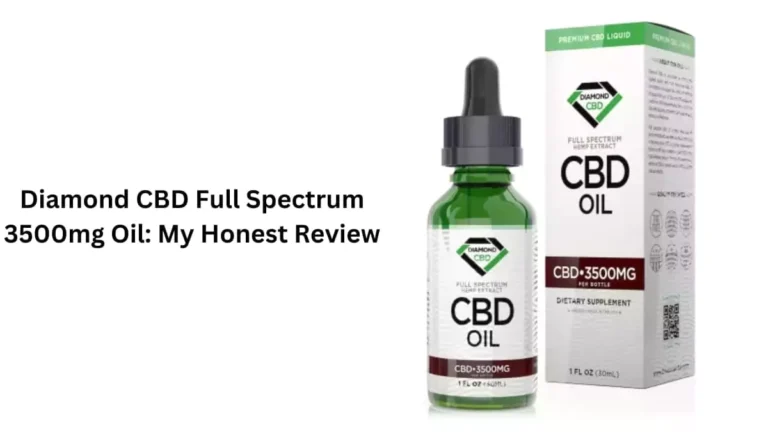Potential CBD Oil Addiction: CBD oil has become increasingly popular in recent years due to its potential health benefits. Many people are turning to CBD oil as a natural alternative to traditional medications for various conditions such as anxiety, pain, and inflammation. However, with the rise in popularity of CBD oil comes concerns about addiction potential.
Table of Contents
In this article, we will explore the truth about the potential CBD Oil addiction. We will examine the scientific evidence surrounding CBD oil addiction and provide you with the information you need to make an informed decision about using CBD oil.
Understanding CBD Oil
First, let’s discuss what CBD oil is and how it works. CBD oil is a natural oil extracted from the hemp plant, which contains high levels of cannabidiol (CBD). CBD is a non-psychoactive compound, meaning it does not produce the “high” commonly associated with marijuana.
CBD interacts with the body’s endocannabinoid system (ECS), which is responsible for regulating various physiological processes such as mood, appetite, and pain. The ECS is composed of cannabinoid receptors, endocannabinoids (naturally occurring cannabinoids in the body), and enzymes that break down endocannabinoids.
The Potential CBD Oil Addiction
One of the most significant concerns surrounding CBD oil is potential CBD oil addiction. However, there is currently no evidence to suggest that CBD oil is addictive. In fact, CBD may even have anti-addictive properties.
A study published in the Journal of Clinical Psychology found that CBD may reduce cigarette consumption in smokers. The study found that smokers who used CBD inhalers smoked fewer cigarettes than those who used a placebo inhaler.
Another study published in the Journal of Substance Abuse and Alcoholism found that CBD may have potential as a treatment for opioid addiction. The study found that CBD reduced drug-seeking behavior in rats addicted to opioids.
While these studies suggest that CBD may have potential as an anti-addictive substance, more research is needed to fully understand the relationship between CBD and addiction.

CBD Oil and Withdrawal Symptoms
Another concern surrounding CBD oil is whether it can cause withdrawal symptoms. Withdrawal symptoms occur when someone stops using a substance that they have become dependent on, such as drugs or alcohol.
However, there is currently no evidence to suggest that CBD oil causes withdrawal symptoms. In fact, CBD may even help to alleviate withdrawal symptoms from other substances.
A study published in the Journal of Clinical Psychopharmacology found that CBD may reduce symptoms of withdrawal in people with cannabis use disorder. The study found that CBD reduced anxiety, insomnia, and cravings in participants who were trying to quit cannabis.
CBD Oil and Dependence
Some people are also concerned that using CBD oil regularly may lead to dependence. Dependence occurs when someone relies on a substance to function normally, and experiences withdrawal symptoms when they stop using it.
However, there is currently no evidence to suggest that CBD oil causes dependence. In fact, CBD may even help to reduce dependence on other substances.
A study published in the Journal of Neurotherapeutics found that CBD may have potential as a treatment for addiction to opioids, cocaine, and other stimulants. The study found that CBD may reduce drug cravings and help to prevent relapse in people with addiction.
CBD Oil and Side Effects
Like any substance, CBD oil can cause side effects in some people. The most common side effects of CBD oil include:
- Nausea
- Dizziness
- Dry mouth
- Fatigue
- Changes in appetite
However, these side effects are generally mild and go away on their own. It is also important to note that CBD oil is generally well-tolerated, and serious side effects are rare.
Potential CBD Oil Addiction: Conclusion
There is currently no evidence to suggest that CBD oil is addictive or causes withdrawal symptoms or dependence. In fact, CBD may have potential as an anti-addictive substance, helping to reduce drug-seeking behavior and alleviate withdrawal symptoms from other substances.
While more research is needed to fully understand the relationship between CBD and addiction, the current scientific evidence suggests that CBD is a safe and potentially beneficial natural alternative to traditional medications for various conditions.
It is important to note that if you are considering using CBD oil, it is essential to do so under the guidance of a healthcare professional. CBD oil can interact with certain medications.
Additionally, it is crucial to purchase CBD oil from a reputable source to ensure that it is free from contaminants and contains the advertised amount of CBD.
Overall, CBD oil has the potential to offer various health benefits without the risk of addiction, withdrawal symptoms, or dependence. With the right guidance and precautions, CBD oil may be a safe and effective natural alternative for those seeking relief from various conditions.
In conclusion, while concerns about the addiction potential of CBD oil may exist, the current scientific evidence suggests that these concerns may be unfounded. CBD oil may even have potential as an anti-addictive substance, helping to reduce drug-seeking behavior and alleviate withdrawal symptoms from other substances.




[…] Spectrum CBD Oil is a type of CBD oil that contains all of the cannabinoids, terpenes, and other natural compounds found in the hemp […]
[…] A deep understanding of your addiction. […]